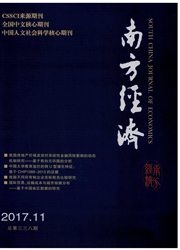

 中文摘要:
中文摘要:
腐败现象在人类社会源远流长,深入理解其本质和决定因素是有效治理腐败的基础。腐败的经济学研究基本沿着委托代理理论的脉络展开,分析不同激励体系以及各类制度安排对腐败的决定作用。在对理论和实证中涉及的腐败本质及其决定因素系统总结的基础上,本文重点梳理了近年来实验经济学对腐败相关问题的研究。这些研究从度量腐败、检验理论和反腐机制设计等多层面出发,对认识腐败行为的本质与内在动机,进而发展系统有效的反腐败措施提供了丰富见解。
 英文摘要:
英文摘要:
Corruption is a lasting phenomenon in human history. Understanding the essence and determinants of corruption is the foundation for effective anti - corruption practice. Economic research on corruption has been focused on the principle - agent model and investigates the effects of different incentive systems and fundamental institutional arrangement. This paper focuses on the experimental research on corruption behavior through a systematic review on boththeory and empirical literature onthe essence and determinants of corruption. These experimental studiesput great effort on the measuring real corruption behavior, testing theory, as well as designing anti -corruption mechanisms. Thisliterature providesusefulevidencefor us to understand the essence of corruption behavior and its intrinsic driving forces, thereby givingimportantinsights for anti -corruption practice.
 同期刊论文项目
同期刊论文项目
 同项目期刊论文
同项目期刊论文
 期刊信息
期刊信息
